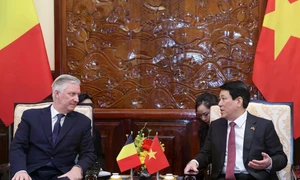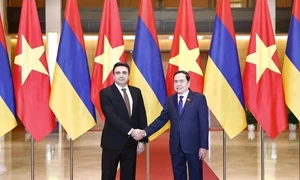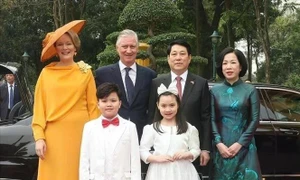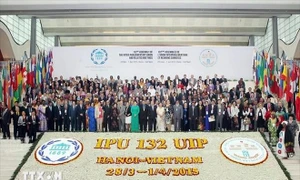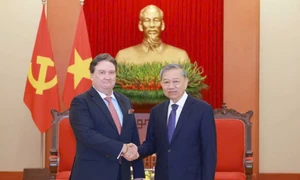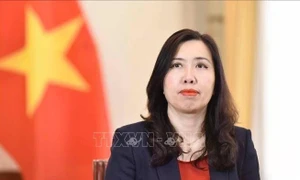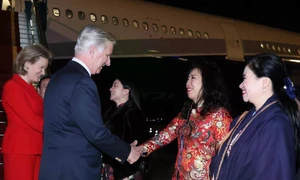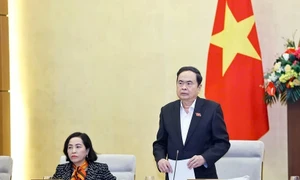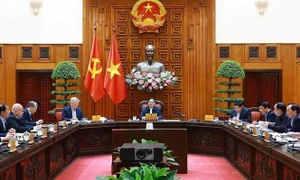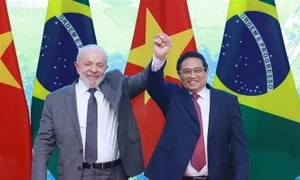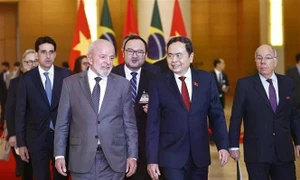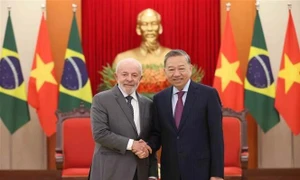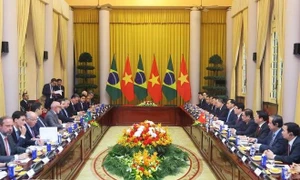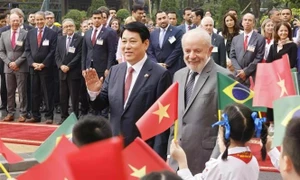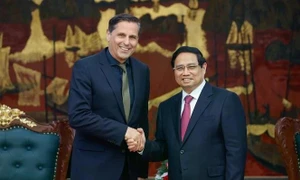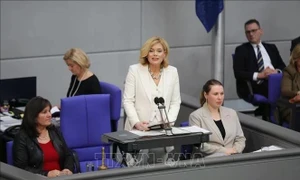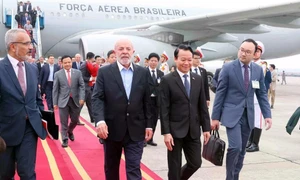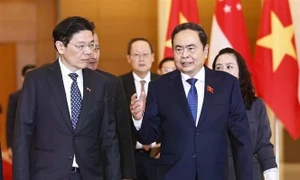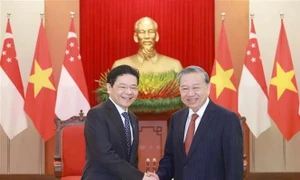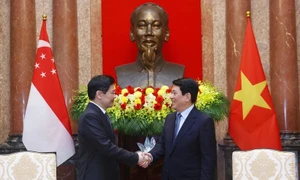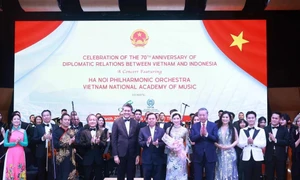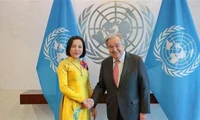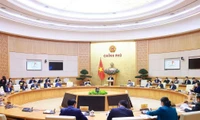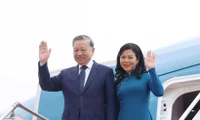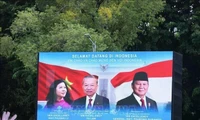The freshly-signed Comprehensive Economic Partnership Agreement (CEPA) between Vietnam and the United Arab Emirates (UAE) opens up a new era of the bilateral relationship that has been upgraded to a comprehensive partnership and growing substantively.
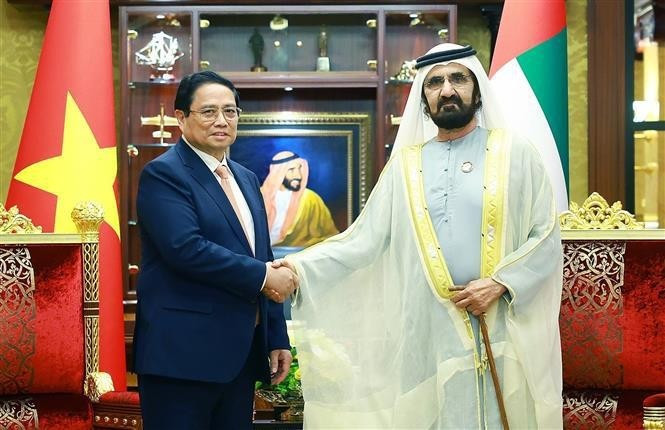
The freshly-signed Comprehensive Economic Partnership Agreement (CEPA) between Vietnam and the United Arab Emirates (UAE) opens up a new era of the bilateral relationship that has been upgraded to a comprehensive partnership and growing substantively.
The deal, the first free trade agreement Vietnam has established with an Arab country, was signed by Vietnamese Minister of Industry and Trade Nguyen Hong Dien and UAE Minister of State for Foreign Trade Thani bin Ahmed Al Zeyoudi in Dubai on October 28 (local time). Visiting Prime Minister Pham Minh Chinh and UAE Vice President and Prime Minister Sheikh Mohammed bin Rashid Al Maktoum witnessed the signing of the agreement.
It is also expected to usher in a new period of the relations between Vietnam and Arab countries.
The signing came in the context of the thriving trade between Vietnam and the UAE, following a year of negotiations. It vividly demonstrates a joint commitment to advancing the bilateral trade-investment ties to a new height.
With 18 chapters, 15 appendices, and 2 bilateral letters, the CEPA covers areas such as trade in goods, services-investment, rules of origin, technical barriers to trade, sanitary and phytosanitary measures, customs, trade remedies, government procurement, intellectual property, and legal and institutional affairs.
Under the agreement, both sides made strong commitments to trade liberalisation, with the UAE pledging to phase out tariffs on 99% of Vietnam’s exports, and Vietnam to remove tariffs on 98.5% of the UAE’s exports.
The agreement also includes various provisions facilitating trade and investment, aligning with digital digital transformation and green development trends.
Currently, the UAE is one of Vietnam's most important trade and investment partners in the Middle East, serving as a key gateway for the Southeast Asian nation to access markets in this region as well as in Western Asia and Africa. Additionally, their economic and trade structures are reciprocal.
Statistics show that the UAE is Vietnam's largest export market and its second-largest trade partner in Western Asia, after Kuwait.
According to the General Department of Vietnam Customs, during the 2018-2023 span, the average annual trade turnover between the two countries reached approximately 5 billion USD, with Vietnam running a trade surplus from 3 to 4 billion USD per year.
The two-way trade was valued at nearly 4.7 billion USD in 2023, up 5.9% year-on-year, and 4.47 billion USD in the first eight months of this year, a 45% increase compared to the same period last year.
Vietnam’s main exports to the UAE included mobile phones, computers and components, electrical products, home electronics, pepper, aquatic products, footwear, garments-textiles, plastics, and furniture. Key items from the UAE to Vietnam consisted of raw plastics, liquefied petroleum gas (LPG), petroleum-based products, animal feed ingredients, common metals, and chemicals.
Vietnam and the UAE on October 28 issued a Joint Statement on the upgrade of their relations to a Comprehensive Partnership on the occasion of Prime Minister Pham Minh Chinh’s official visit to the Middle East country./.
